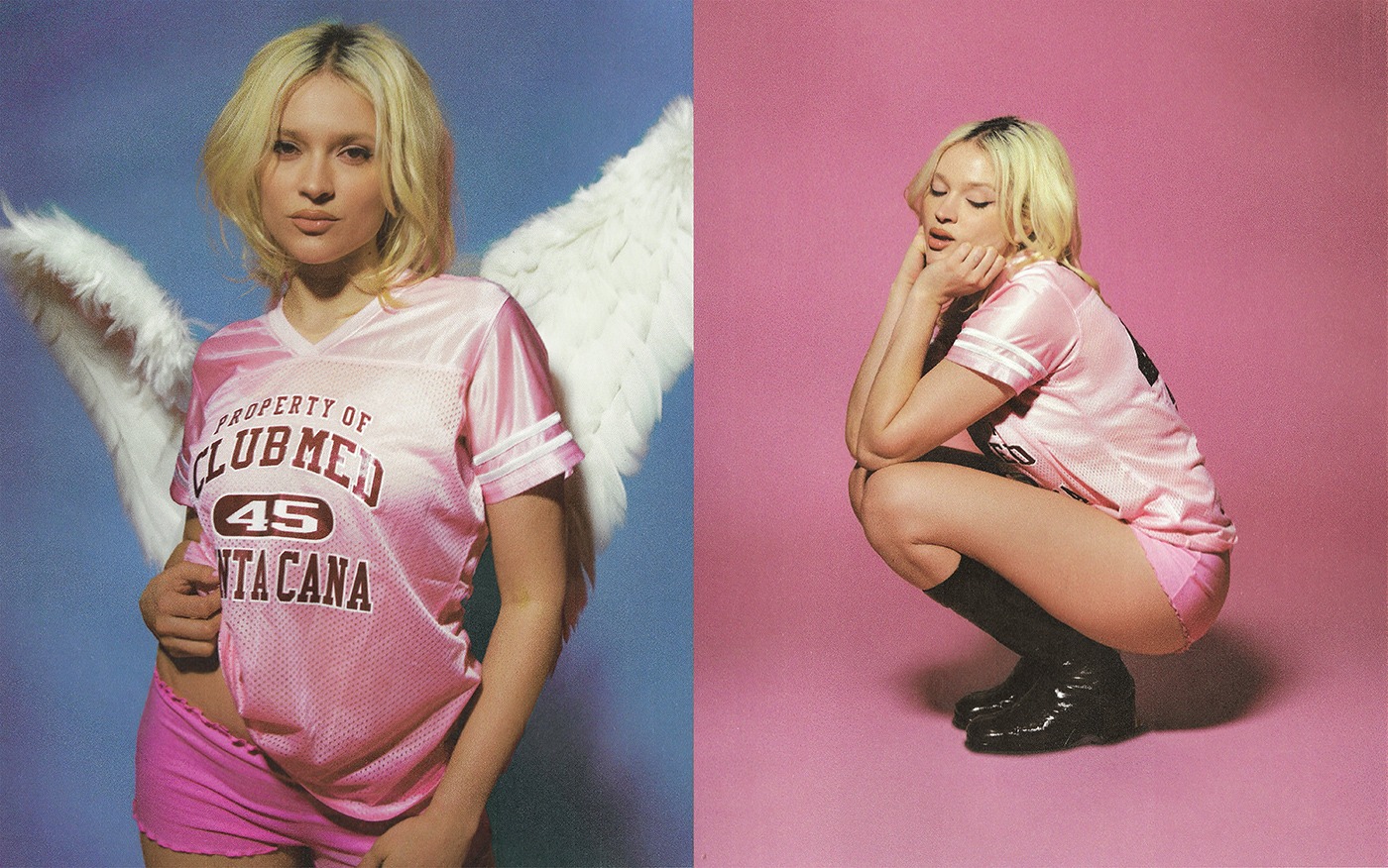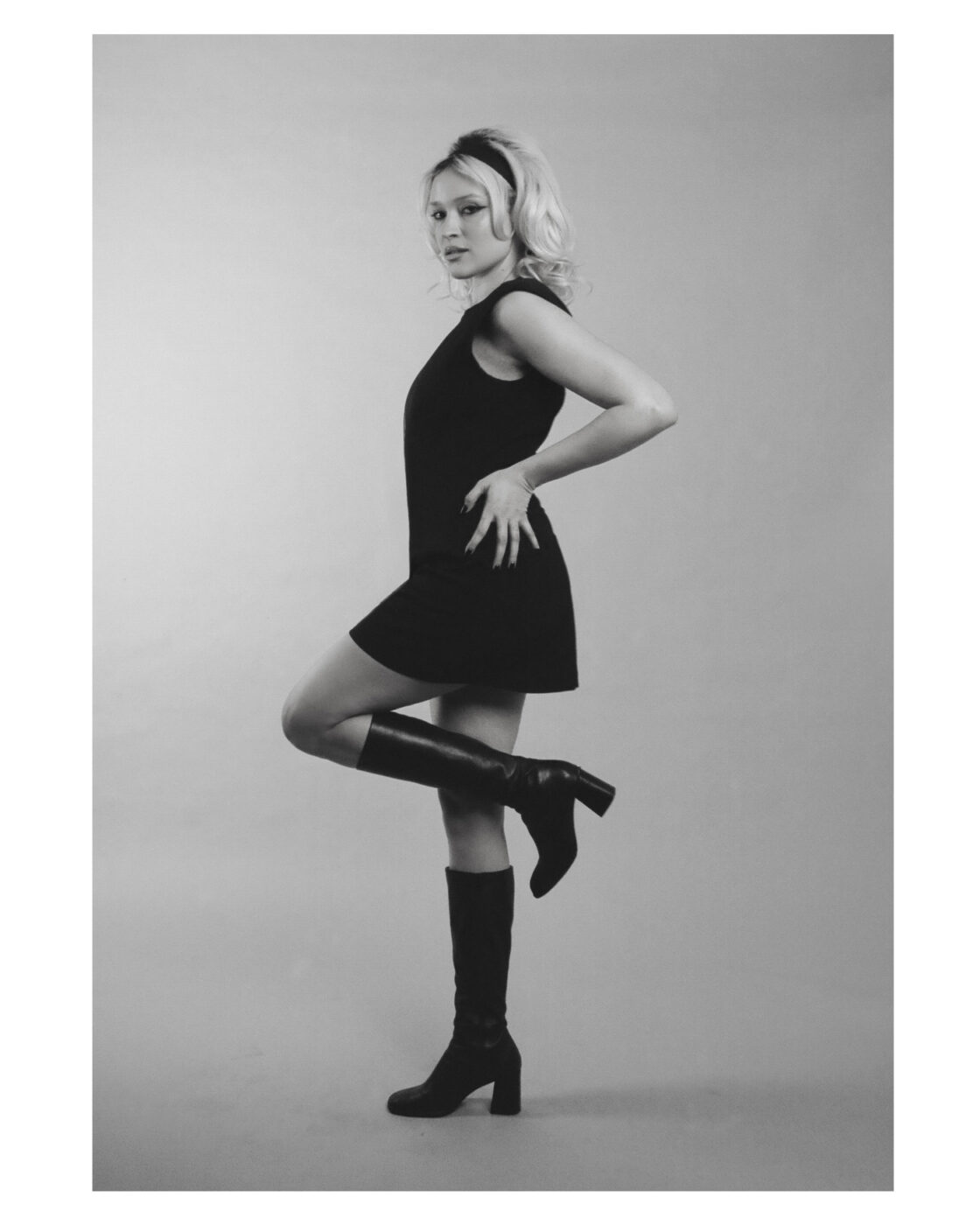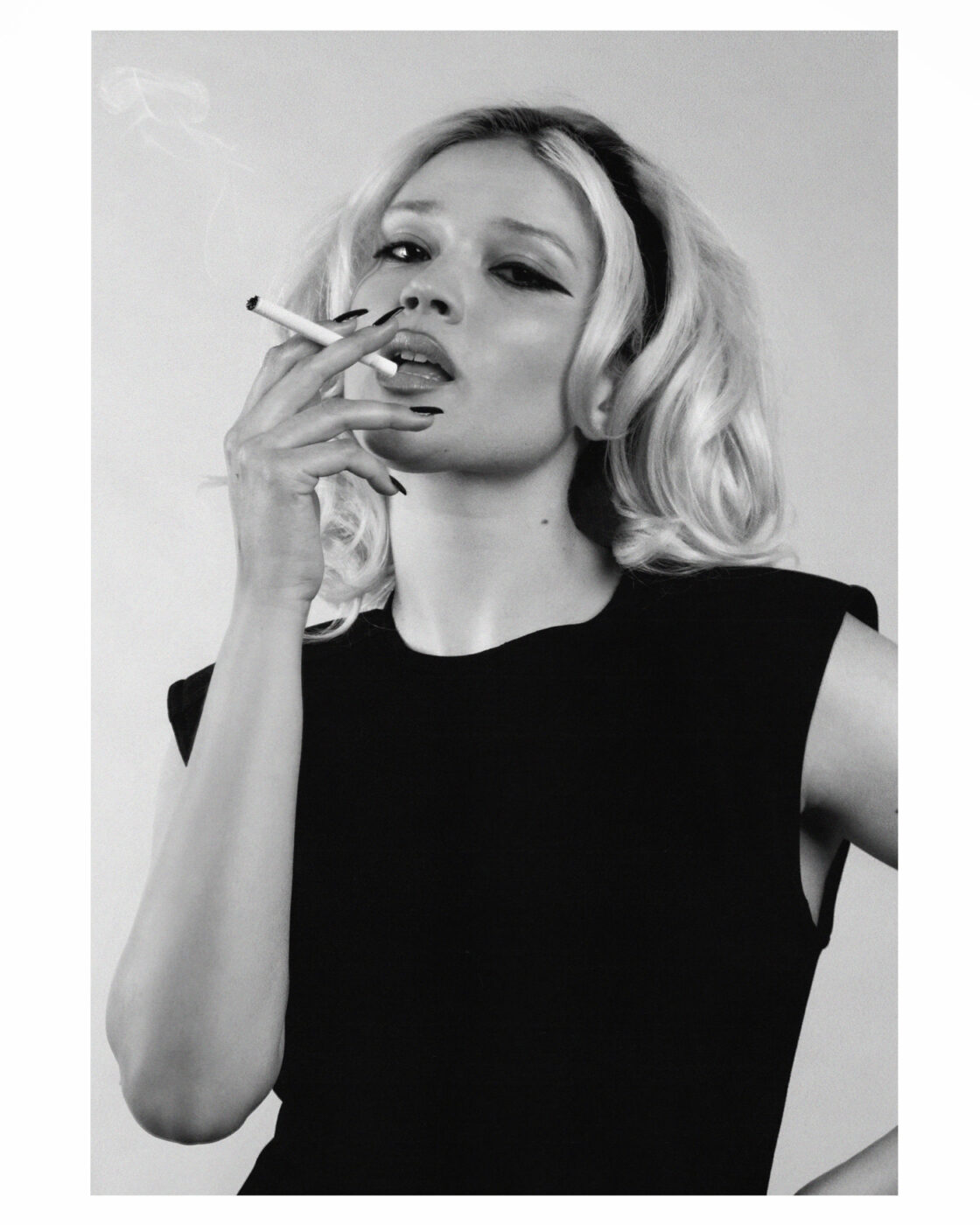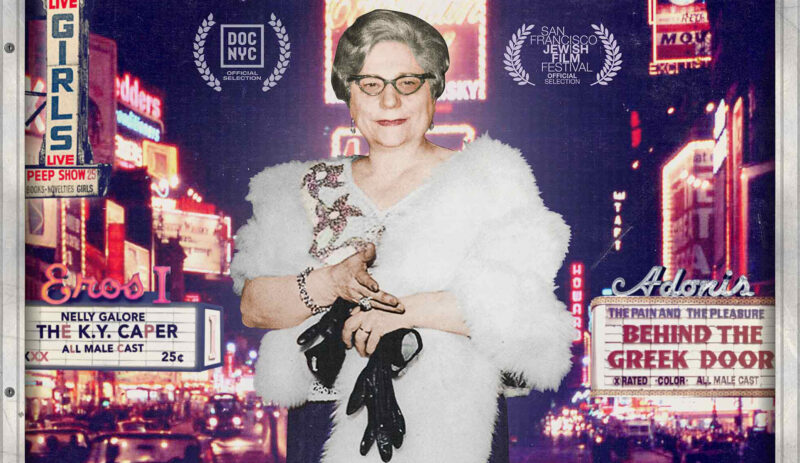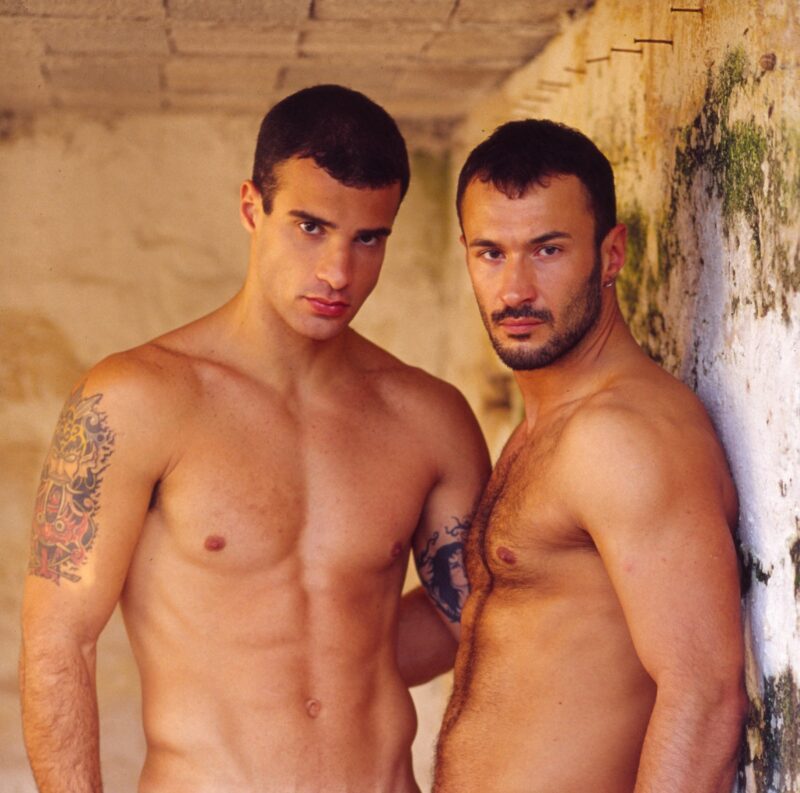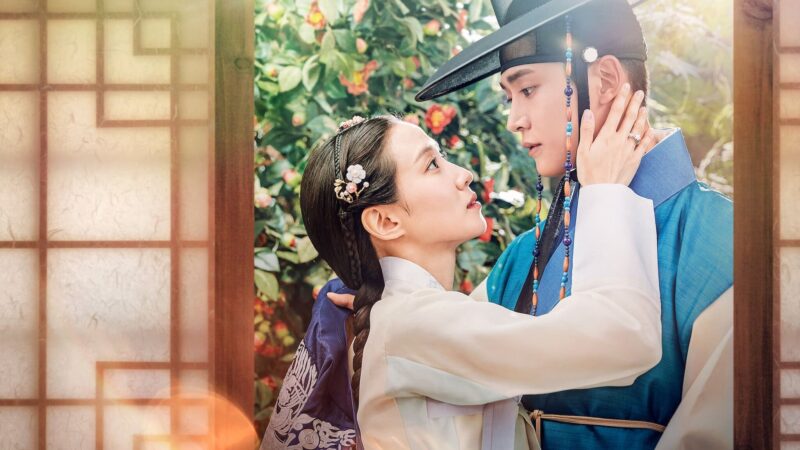It’s a cold December day in Crown Heights and the enigmatic singer/songwriter Lolo Zouaï is sitting streetside at one of the otherwise deserted outdoor tables of a neighborhood coffee shop. Bundled in a winter puffer, Zouaï seems entirely unphased by the biting cold and the cacophony of sirens, honking cars, and garbage trucks. Amidst this urban chaos we dive into the essence of Zouaï’s artistry, exploring the inspiration behind her captivating melodies and the resilience that distinguishes her as a rising star.
PLAYGIRL: Your debut album, High Highs to Low Lows, and particularly the song “Desert Rose,” explores your unique personal background and your struggles as an artist pulled between different cultures, searching for home. How has this album and the feedback from listeners shaped your artistic development?
Lolo: “Desert Rose” was a song that I needed to write. I didn’t realize how much my separate cultures could clash until my family started pushing back on my choice to become a singer, which some religions view as a vain profession. It was never my intention to make music out of vanity. I’ve always thought of it as something that could help other people. So, when I was supposed to travel to Algeria, and my family told me I wasn’t welcome, it really hurt. In response I decided to write a song that sonically blends a bit of Arabic, French, and R&B. I ended up making this kind of “why don’t you love me” song. A lot of people think it’s this romantic, sexy song, but it’s actually about family and culture. I’ve met so many young listeners that relate to the song in different ways. Fans have shared how it helped them come out to their families or simply helped them feel less alone. “Desert Rose” really introduced my music to a wider audience and gave me a bigger purpose in music.
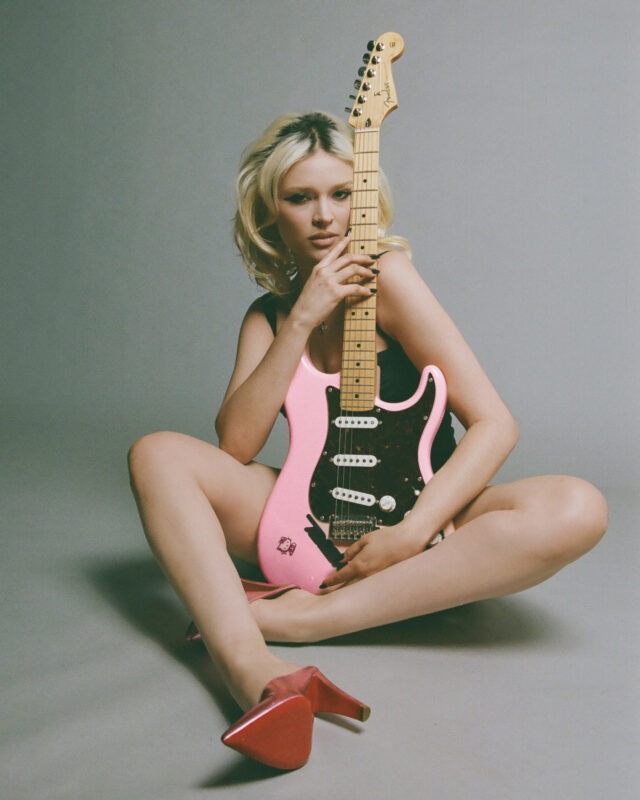
PLAYGIRL: Your second album, Playgirl, departs from the first with a more upbeat and playful tone channeling three distinct characters: the playgirl (pl4yg1rl), the dreamgirl, and the partygirl. What drew you to this concept and how did these characters develop?
Lolo: The word “playgirl” came to me in 2020. I didn’t know what it was yet, but it somehow resonated with me. I was just starting to make new music and realized that I had so many different sounds and personas coming through, which inspired me to create three distinct “playgirl” characters. The first persona—the dreamgirl—embodies youth, playfulness and connection to my inner child. Through this persona I explore that nostalgic feeling of being young, innocent, hopeful and dreamy. The second persona—the partygirl—is a playgirl in the more traditional sense. She’s an independent woman, who has money and doesn’t need a man. She’s moody, she does whatever the fuck she wants, and she’s sad at times—partying in part to mask an inner darkness. The last persona—the pl4yg1rl—is daring, innovative, bold, and unafraid to take chances.
PLAYGIRL: The Playgirl album explores themes of voyeurism, sexuality, intimacy and love, often tapping into some of the anxieties that can accompany these feelings—anxieties about giving too much of yourself or a loss of control over your body, your narrative and your sense of self. Do you see this album as a kind of therapeutic exercise in reclaiming a sense of control?
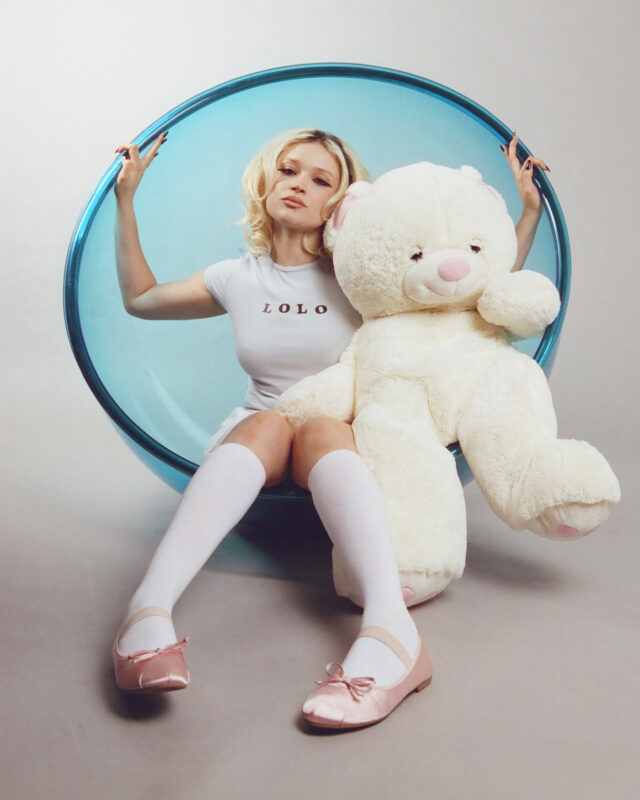
Lolo: Absolutely. Statistically, one out of three women have been taken advantage of or sexually assaulted and I try to speak to those feelings and experiences in songs like “Room.” While making music, I don’t consciously view it as a therapeutic process, but in retrospect, that’s what it is. Looking back, perhaps I’ve hesitated to fall in love because I like having control over my personhood, my body and my mind. When you give yourself over to love, you often lose a little bit of yourself, which can be scary. As an independent artist, I make sure I have a part in every aspect of my work, which allows me to control both my career and my narrative.
PLAYGIRL: How does that feeling of losing pieces of yourself in love translate to your role as a public figure in an industry where you’re expected to give so much of yourself?
Lolo: Being a musician is difficult because, as artists, we’re sensitive beings and the music industry takes a lot from you. You’re expected to share yourself on social media and be vulnerable while maintaining a sense of mystery. Many artists struggle with finding the right balance between being open and giving away too much. That’s why music is so important. It allows you to express yourself freely and be as vulnerable as you want. There’s no judgment in music.
PLAYGIRL: Like much of your music, your latest EP, “Crying in the Carwash,” offers a deeply personal insight into feelings of depression and loss. How does it feel to share these vulnerabilities with your audience?
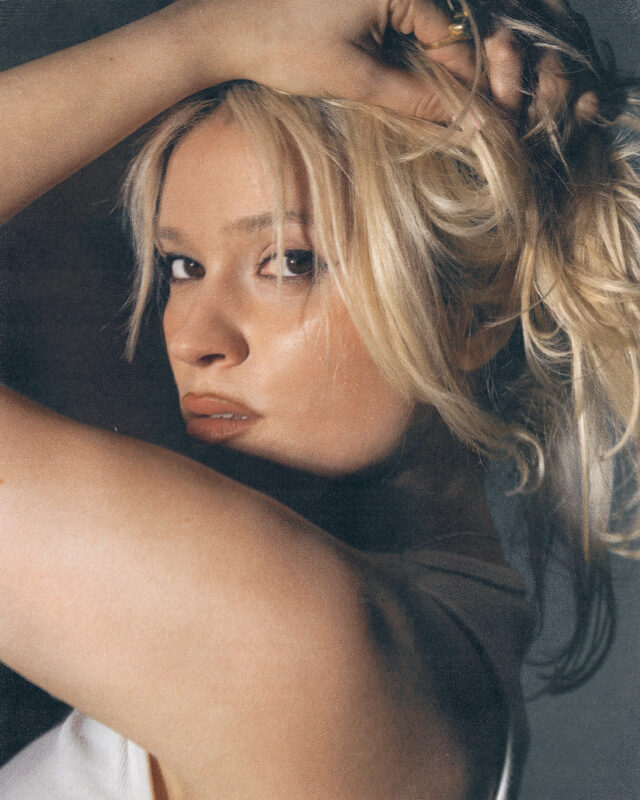
Lolo: When I first started making music, I didn’t hear a lot of music that I related to, but once I found music that addressed deeper feelings beyond love, I knew I wanted to explore that in my own work. “Crying in the Carwash” touches on depression in the sense that I never explicitly say why I’m sad, which mirrors the nature of depression itself. It’s genetic, but it’s also a symptom of the times. With technology and social media, we’re bombarded by a constant flow of information that we were never prepared to process—leading to information overload and depression. I’m not afraid to talk about my experience with depression because I see it as a form of intelligence—it’s questioning life. I think a lot of people are depressed and afraid, which is why it’s important for me to talk about it in my music.
PLAYGIRL: How do you see your Playgirl album in conversation with the legacy of the magazine?
Lolo: When my album came out, a friend of mine bought me a bunch of vintage Playgirl magazines and I just love them. They’ve been great for graphic design and visual inspiration.
I actually wanted to name my song, “pl4yg1rl,” “playgirl.com,” but my label at the time was too nervous about it. I was pissed and felt like they were censoring me, but I find it amazing and empowering that it’s come full circle now with this interview. Sometimes you just have to go with your vision.
PLAYGIRL: Do you see yourself as a playgirl?
Lolo: Yes! THE playgirl!

